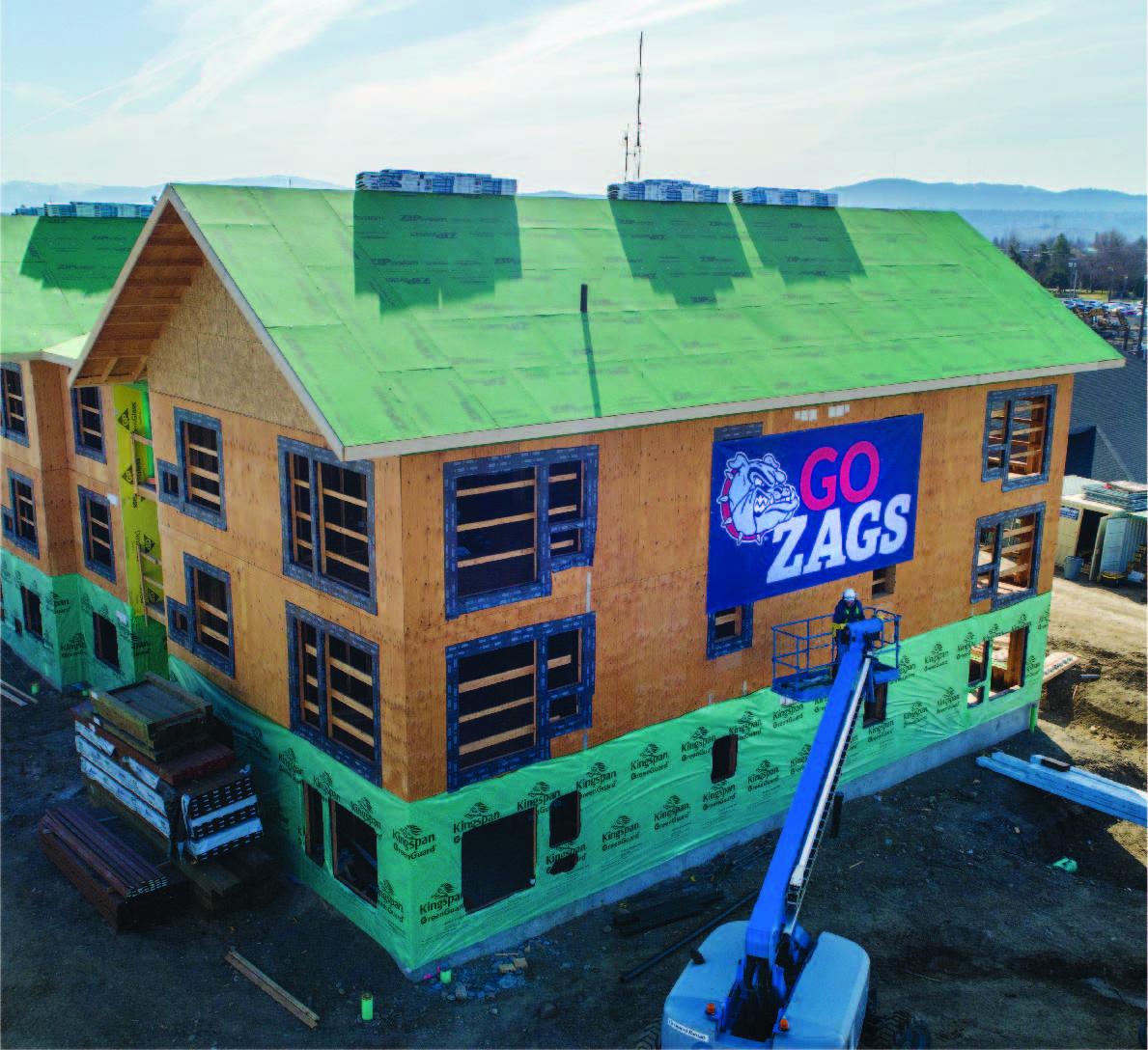Building inside and out

The Gonzaga Family Haven is a Catholic Charities of Eastern Washington affordable housing community currently under construction in the Logan Neighborhood. The vision is to provide up to 73 families with long-term supportive housing. Families who have experienced homelessness and family separation will receive wrap-around social supports and educational programs that allow them to thrive. The project includes a unique partnership involving Catholic Charities of Eastern Washington (CCEW), Gonzaga University, Gonzaga Preparatory School, and additional educational and social service partners.
Over the past six months, partners have met to develop educational and enrichment programs for the Gonzaga Family Haven with a focus on early childhood programming, enrichment programs for youth, and educational and community-building programming for adults and families. In a desire to develop programming that is both resident-informed and adapted to the unique interests and needs of Haven families, a series of conversations was conducted this march with the Gonzaga Family Haven service providers, CCEW case managers, CCEW Rising Strong staff, and current Rising Strong and Haven residents.
The purpose of these conversations is threefold:
1) To identify the types of programs residents would find of interest and of benefit to themselves, their family, and the broader Gonzaga Family Haven community;
2) To identify the strengths and assets that Gonzaga Family Haven residents will bring into this community that can be shared and developed; and
3) To identify both the opportunities and barriers to sustained resident and family engagement.
From these interviews numerous themes emerged around programming that residents and case managers found to be the most valuable. Recovery groups ranked the highest, followed by summer programming and mindfulness activities. Skill-based activities and health care access ranked towards the lower end.
In regards to strengths and assets, residents spoke to their care, love, generosity, and compassion. CCEW staff and service providers also shared that residents had much to offer one another. Residents hold a unique understanding of where each other have come from, they have a wide range of experiences from diverse jobs to finding creative ways to navigate systems and find resources, and are seen as community-oriented and natural community builders.
Parental stress and significant trauma were identified as barriers. Residents shared that some of the challenges they face are judgment by others, mental health challenges, lack of a support system, negative influences, and being challenged to balance everything. CCEW staff and service providers shared that trust is central to involving and engaging families. They need to be invited in to share their voice and perspective, but their voice and time need to be valued (and compensated). If trust and a sense of community are built, residents will be more interested and invested in engagement.
Residents shared that they are interested in leading activities like facilitating peer groups, mentoring each other, teaching cooking or gardening classes. One individual also shared that they would like their voice to be used for good. Understanding and love also were shared as important to making individuals and families feel a part of the community.
Read the entire Digital Opportunity Northeast May Newsletter here
